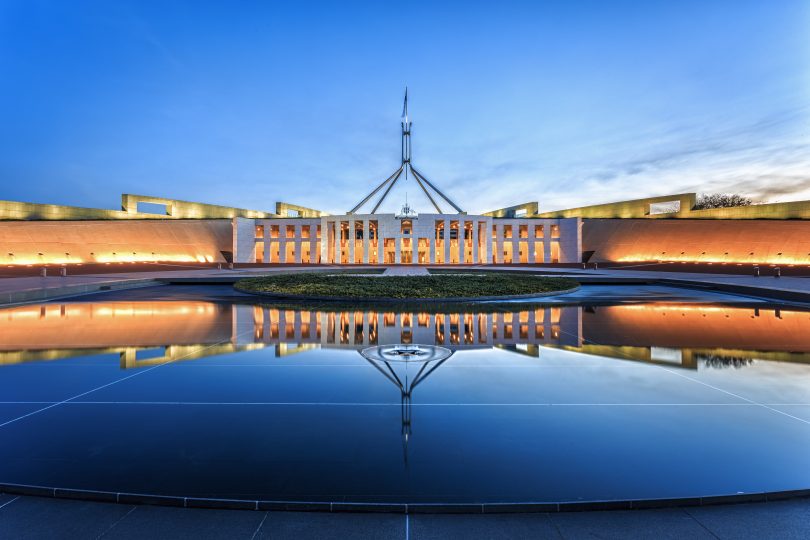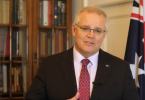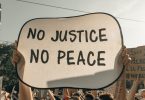Australia’s national anthem sings “Australians all let us rejoice, for we are young and free”, but when it comes to reporting on national security issues, journalists are heavily restricted in whom they can speak to and what they can publish.
Since the 9/11 attacks in 2001, according to the MEAA 2020 Press Freedom Report, the Australian Government has gone to great lengths to protect their citizens, with over 82 national security laws being introduced, including the Australian Security Intelligence Organisation (ASIO) Act 1979.
But the impact extends past the safety of the nation and into limiting the media’s freedom to report on Government operations.
These laws restrict what information can be published about Government agencies and their inside operations.
As important as national security laws are, have they always used to protect Australians? Or has the Government, at times, used them to hide embarrassing information?
The impact of the ASIO Act on public interest journalism
A journalist’s role within society is to provide the public with information that is accurate and balanced so individuals can develop their own opinions on topics, whether it be politics, sport or current affairs.
As a result of their position, journalists also have the responsibility of holding the Government to account, to ensure that decisions they are making are the right ones.
This is where it gets tricky: how can journalists publish information that the public should know if the Government can hide it behind legislation?
Certainly, at times the ASIO Act was enforced for the right purposes; to protect Australians from the threat of danger. However, there were times when the Government could be perceived as taking advantage of the law.
For example, in 2017 ABC journalists Dan Oakes and Sam Clark published ‘The Afghan Files’, which resulted in an investigation into whether the pair had breached national security when they revealed insider information that supposedly put Australians at risk.
But in contrast to endangering Australians, the pair exposed information that the public deserved to know; the inside operations of the Australian Defence Force, including reports that Australian soldiers had killed multiple unarmed Afghans while being deployed in Afghanistan between 2009 and 2013.
This apparent breach of top-secret national security information led the Australia Federal Police to raid the ABC as a part of their three-year investigation into the journalists and their sources.
In an article published on ABC’s website at the time of the raids, ABC managing director David Anderson said that the information exposed by Oakes and Clark was in the public interest and that journalists should be able to scrutinise the Government on national security matters, without the fear of prosecution.
“This is a serious development and raises legitimate concerns over freedom of the press and proper public scrutiny of national security and Defence matters,” Mr Anderson said.
“The ABC stands by its journalists, will protect its sources and continue to report without fear or favour on national security and intelligence issues when there is a clear public interest.”
Similarly, in that same article, ABC’s director of news Gaven Morris said the laws not only impacted a journalist’s ability to report accurately but had a greater impact on the wider society.
“I’d say to all the journalists at the ABC and all the journalists across Australia, don’t be afraid of the job you do,” Mr Morris said.
“Stand up and be proud of it and continue to act in the public’s interest knowing the stories you tell and the service you provide the community is a vital one for our democracy.”
Silencing sources is detrimental to democracy
What happens when journalists can’t get access to the insiders who hold the vital information that the public should know? Or when whistle-blowers are too afraid of the potential 10-year jail sentence for disclosing insider information, that they don’t speak out about the wrongdoings that occur behind closed doors?
The answer is that Australia’s democracy is weakened, and public interest journalism can no longer inform people with the truth about the decisions being made on their behalf.
MEAA chief executive Paul Murphy said in the 2020 Press Freedom Report that laws such as the ASIO Act provided the Government with an escape from the negative impacts of public opinion.
“These laws allow governments to hide information from public view and punish those who reveal that information,” Mr Murphy said.
“There is no need for the government to explain or even justify why the information is cloaked in secrecy – all you need to know is that the government has deemed it so.”
Although there are times when it is important to national security that information remains secret, the Australian Government must be careful when it enforces these laws, as the trust of the nation relies upon it.
Australians are entitled to access fair and balanced public interest journalism. Insiders should be able to share important information with journalists without fear of prosecution.
(Feature image: Australia’s Parliament House, Canberra. Source: Adobe Stock Photography)








It’s a shame that laws that were supposed to protect us, have been used to silence journalists and to stop stories being told. It needs to change.
I’m torn on this one as obviously there are cases when it could be argued the public doesn’t need to know about certain things, and that by revealing them the press could put people in danger. But at the same time whole The Afghan Files fiasco makes the point that the press should also have some freedom to hold the government to account for actions the public would deem questionable. I can’t decide…
At least we can all agree that the opening paragraph quoting the Australian anthem was very witty 🙂
Thanks for your comment, James. I definitely agree with you, it’s a very tricky subject. I think if the laws are used correctly, then they will keep the country safe. However, it is when they are misused that they cause controversy. Unfortunately, we have seen the Government misuse them too often.
Celie, this is such a fascinating topic. I really appreciate and admire your level-headed tone; I would have struggled against the urge to editorialise.
I also struggle with the conflict between some information truly needing to remain secret – and governments having so thoroughly proven that they cannot be trusted to reliably report which information that is. How the [redacted] are citizens meant to trust government on this issue, and how can the situation improve when recent history is littered with cautionary tales meant to discourage whistleblowing?
And prompted by your Oakes and Clarke example, I’m curious how SecureDrop is going for the ABC. https://www.abc.net.au/news/2019-11-28/securedrop-installed-for-contacting-abc-journalists-anonymously/11708200
Thank you, Jude. It is definitely a tricky topic to discuss!
I think the whole topic of national security and the ASIO Act comes down to trust and whether we can trust those in power to use the laws for the right reasons. It will be interesting to see how the Government utilise the laws in the future now that media organisations have criticised their previous implementation of them.
Great article Celie.
These laws must change – the possibility of a 10-year jail sentence is ridiculous. The government should have to prove actual or likely harm to national security in these cases, and journalists should have access to a public interest defence.
While it is true in some cases (certainly not in all cases that the government argues for secrecy) that revealing information could cause a threat to national security, the power to determine whether this is the case should not be left to the government alone. Perhaps it could be reviewed by a panel of judges and civil rights advocates who have been given the requisite security clearance.